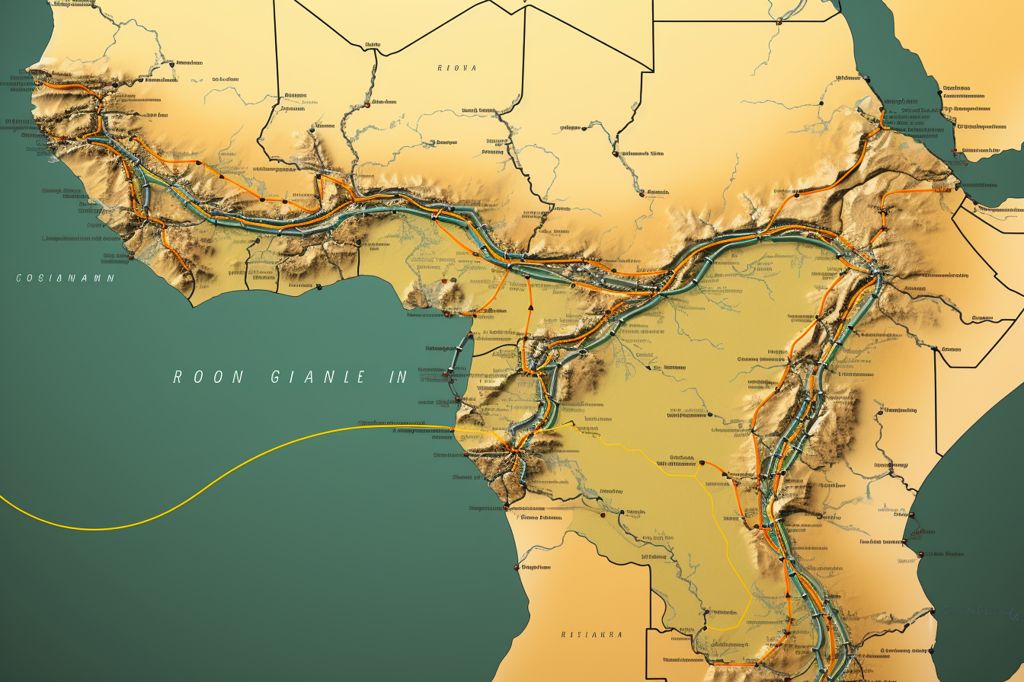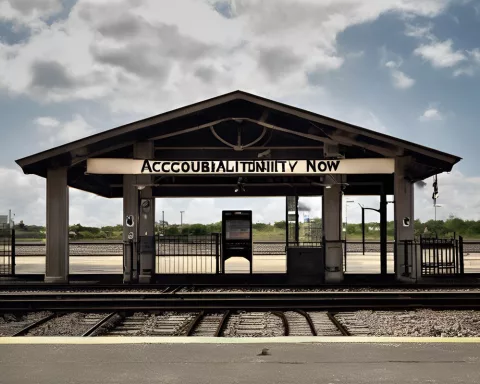South Africa’s Transport Minister Sindisiwe Chikunga has ambitious plans to recover 80% of the rail corridors and lines, modernize public transportation, and revitalize the passenger rail system. This initiative comes during a challenging time as the country’s transport sector tackles the impacts of the pandemic and severe flooding in some regions. Various stakeholders, including MECs of transport, roads, infrastructure, public works, and community safety, are collaborating to build better transport infrastructure for all South Africans, emphasizing the government’s dedication to improving the transport sector.
Transport Minister Sindisiwe Chikunga recently shared her ambitious plans to revitalize South Africa’s passenger rail system, aiming to recover 80% of the rail corridors and lines and modernize public transportation. This crucial initiative comes during a challenging time as the country’s transport sector tackles the impacts of the pandemic and severe flooding in some regions.
October Transport Month: Celebrating Achievements and Anticipating the Future
In collaboration with South African MECs (Member of the Executive Council) from various departments, the 18th edition of October Transport Month campaign was launched to emphasize the significance of transportation infrastructure. The theme, “Siyakha: We are building a better transport infrastructure to grow South Africa together,” highlights the government’s dedication to enhancing national transportation networks. The campaign offers the department a platform to celebrate their achievements and share future plans across diverse transport modes.
The Urgent Need for Rail Service Renewal
South Africa’s rail service has needed significant attention, especially following the disruptions brought by the COVID-19 pandemic. With the decline in rail services, dependence on road transportation grew, leading to a rise in accidents. Chikunga recognized this issue, attributing it to the expansion of rail freight and passenger transport. She also pointed out various domestic factors impacting the economy, such as unreliable electricity supply, skills shortages, regulatory uncertainties, and market concentration, all exacerbated by the pandemic and slow infrastructure development.
Advancing the Restoration and Modernization of Rail Services
Despite these obstacles, Minister Chikunga commended the Passenger Rail Agency of SA (Prasa) for their progress in rebuilding the passenger rail network. She stressed the crucial role Prasa has in establishing the rail system as the foundation of public transportation and unlocking socio-economic benefits for the nation. To date, Prasa has recovered 18 out of 40 corridors across Gauteng, the Western Cape, and KwaZulu-Natal, while 230 stations have been restored to basic functionality. Major cities like Cape Town, Johannesburg, Durban, Pretoria, and Ekurhuleni now have operational train services.
The recent reopening of the Leralla to Germiston line is a significant achievement, moving South Africa closer to providing services between the three major Gauteng metros. Additionally, Prasa will participate in the International Rail Safety Council (IRSC) conference, presenting papers on railway safety and emphasizing the importance of renewing passenger rail in South Africa. The IRSC is a worldwide forum known for facilitating dialogue and sharing experiences to improve rail safety globally.
United Efforts to Improve Transport Infrastructure
South Africa’s ongoing passenger rail system revitalization and modernization wouldn’t be possible without the collective efforts of various stakeholders, including the MECs of transport, roads, infrastructure, public works, and community safety. By joining forces, these organizations can overcome the challenges brought by the pandemic and other economic hurdles. Their collaboration signifies a unified determination to build better transport infrastructure for all South Africans.
Embracing Transformation for a Promising Future
Minister Sindisiwe Chikunga’s comprehensive plans and accomplishments demonstrate the government’s commitment to improving the nation’s transport sector. As South Africa recovers from the setbacks caused by the pandemic, the rail system’s revitalization will play an essential role in enhancing mobility, fostering economic growth, and improving the quality of life for millions of South Africans. By embracing change and pursuing modernization, South Africa can look forward to a brighter, more accessible future in passenger rail transportation.
1. What are the plans of Transport Minister Sindisiwe Chikunga for South Africa’s passenger rail system?
The Transport Minister has ambitious plans to recover 80% of the rail corridors and lines, modernize public transportation, and revitalize the passenger rail system.
2. What is the October Transport Month campaign, and what is its theme?
The October Transport Month campaign is an annual event that emphasizes the significance of transportation infrastructure in South Africa. The theme for the 18th edition of the campaign is “Siyakha: We are building a better transport infrastructure to grow South Africa together.”
3. Why is there an urgent need for rail service renewal in South Africa?
South Africa’s rail service has needed significant attention, especially following the disruptions brought by the COVID-19 pandemic. With the decline in rail services, dependence on road transportation grew, leading to a rise in accidents.
4. What is the role of the Passenger Rail Agency of SA (Prasa) in restoring and modernizing rail services in South Africa?
Minister Chikunga commended Prasa for their progress in rebuilding the passenger rail network. She stressed the crucial role Prasa has in establishing the rail system as the foundation of public transportation and unlocking socio-economic benefits for the nation.
5. What are some of the accomplishments of Prasa in restoring rail services in South Africa?
Prasa has recovered 18 out of 40 corridors across Gauteng, the Western Cape, and KwaZulu-Natal, while 230 stations have been restored to basic functionality. Major cities like Cape Town, Johannesburg, Durban, Pretoria, and Ekurhuleni now have operational train services.
6. What is the International Rail Safety Council, and why is it significant for South Africa?
The International Rail Safety Council is a worldwide forum known for facilitating dialogue and sharing experiences to improve rail safety globally. Prasa will participate in the IRSC conference, presenting papers on railway safety and emphasizing the importance of renewing passenger rail in South Africa.
7. Who are some of the stakeholders collaborating to improve South Africa’s transport infrastructure?
Various stakeholders, including the MECs of transport, roads, infrastructure, public works, and community safety, are collaborating to build better transport infrastructure for all South Africans.
8. How will the revitalization of South Africa’s passenger rail system improve the nation’s future?
The rail system’s revitalization will play an essential role in enhancing mobility, fostering economic growth, and improving the quality of life for millions of South Africans. By embracing change and pursuing modernization, South Africa can look forward to a brighter, more accessible future in passenger rail transportation.












